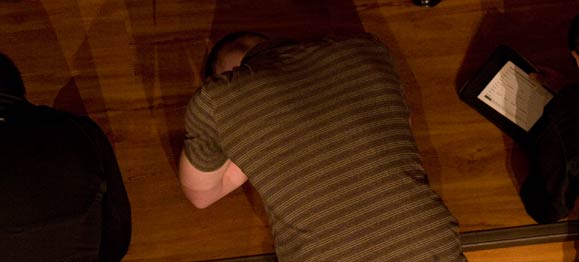I could ask if you have ever made a spiritual decision after a church service, only to break it within twenty-four hours. But every honest Christian would answer that question the same—yes.
So what makes the difference between the decisions we keep and the decisions we let fall by the wayside?
This time last week, we were hosting the West Coast Baptist Youth Conference. Many teens who attended made significant decisions for the Lord. It was an incredible week in which we saw the Holy Spirit at work in many hearts.
After the closing service, I challenged the teenagers to follow through on the decisions which they had just made. The three pointers I shared with them are vital for Christians of any age who desire to experience fruit from their spiritual decisions. We could add more thoughts to this, but plain and simple, here are three ways to keep a spiritual decision:
1. Set a visible reminder.
Last week, we gave the teenagers a bookmark to record their decision. And we challenged them to keep the bookmark in a place where they will see it often—in a book, on their mirror, by their bed. Anywhere that it will be a reminder to them. I pray that many of those bookmarks are even today reminding teens of a decision they made for God.
For you, setting a visible reminder might be recording the decision in your Bible. It may be creating a graphic for your computer desktop. It may be hand making your own bookmark. Whatever it is, find a way to remind yourself of your commitment.
Throughout the Bible, God’s people often set memorial stones of remembrance to solidify their spiritual decisions. I don’t have piles of stones in my house, but I do have many reminders of decisions God has worked in my heart.
2. Seek accountability.
Private decisions often become neglected decisions. There is something about sharing your decision with another person—especially a spiritual authority—that strengthens your own resolve. When a person is unwilling to share their decision with another, they decrease their likelihood of follow through to almost zero.
I challenged the teens last week to let godly authorities, such as their parents and pastors, in their lives know of the decisions they made. Christians who do this benefit from both the prayer and accountability of their spiritual leaders.
3. Follow through with action.
The altar at church is just the starting point—the launching pad—for spiritual growth and change. If a decision is to bear fruit, however, you must distill that decision into steps of action. (This is another great reason to share your decision with another mature Christian. They can often help you identify steps of follow through.)
The more specific your decision, the more clear will be your follow through. The more vague your decision, the less likely you are to follow through. For example, “I have decided to be more Christlike” does not leave you with a clear step of action. Identifying specifically in what area you need to be more Christlike may result in a clearer decision: “I have decided to honor my parents.” Or “I have decided to faithfully attend church.” Those decisions are more clearly distilled into actionable steps.
When the Holy Spirit works in our hearts to convict us of sin and areas that we need to grow, we can be sure that He will give us the ability to make the necessary changes. Philippians 2:13 reminds us that a spiritual decision starts and ends with God’s grace: “For it is God which worketh in you both to will and to do of his good pleasure.”
Reminders, accountability, and action steps help us to purposefully seek God’s work of grace in our lives and to work with Him in what He is doing in our hearts.




